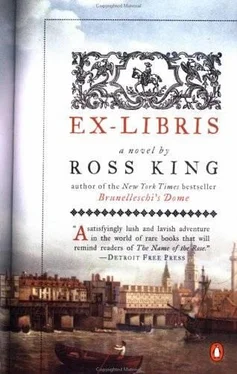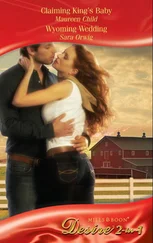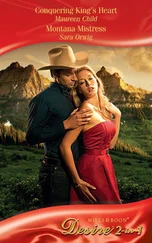I had always liked Biddulph. He was a spry old man with merry blue eyes and a monkish fringe of white hair that stood erect over his ears like the plumicorns of an owl. And as I surveyed the clutter of his study I was pleased to see that he was a man after my own heart. All of his money appeared to have been spent on either books or shelves to hold them. Indeed, most of the volumes in their morocco bindings looked better attired than their owner, who was wearing a pair of scuffed breeches and a tattered leather jerkin. Having seen him only in Nonsuch House, in my own environs, it was strange to meet him on different ground, here in his own little nest with its yellowed engravings of ships pinned to the wall. As I watched a ginger tomcat crawl through the window and on to his lap I reflected with a pinch of sorrow how poorly I knew even my most faithful customers.
After he served us a dinner of spitchcocked eels cooked on a gridiron, we retreated to his study, where he urged me to sample a new beverage called 'rumbullion', or 'rum' for short. It was a hellish fluid that seemed to scald the gullet and cloud the brain.
'Twice as strong as brandy,' he chuckled merrily, noting my grimace. 'Sailors in the West Indies call it "Kill-Devil". It's distilled from molasses. A captain I know smuggles the odd keg back from Jamaica for me. He drops it in Wapping before his ship docks at the Legal Quays.' He chuckled again, but then his blue gaze turned serious and enquiring. 'But you have not come all the way to Wapping to drink rum, Mr. Inchbold.'
'No, indeed,' I murmured, trying to catch a breath that the drink had pummelled from my chest. 'No, Mr. Biddulph, I've come to enquire about a ship.'
'A ship?' He seemed surprised. 'Well, well. And which one might that be?'
At first neither the Philip Sidney nor her captain meant anything to Biddulph. But as I explained why I believed that the ship had sailed on Raleigh's final voyage, he proceeded to squint at the plumtree timbers overhead and chant softly under his breath, 'Plessington, Plessington,' as if the name were some sort of charm. A moment later he clapped his hands together, startling the ginger tom.
'Yes, yes, yes-now I remember. Of course, of course. Captain Plessington! How could I forget?' He had lodged a quid of tobacco in his cheek and now paused to void a stream of juice into a pot between his feet. 'It's just that these days I live in another century,' he said, pointing at his tiny work-table, on which I glimpsed among the pile of volumes a copy of Fazeby's True Report of the Destruction of the Invincible Armada . So the decisive events of 1588, I realised, had at long last been reached. 'I spend so much of my time in the reign of Queen Bess that sometimes my tired old brain gets fuddled. But Captain Plessington-yes, yes, I remember his ship.' He was nodding his head vigorously. 'Indeed I do, Mr. Inchbold. Very well.' But all at once he ceased his nodding, and his merry blue eyes narrowed once more. 'What is it you wish to know about her?'
'Anything you might tell me,' I said with a shrug. 'I believe Plessington was granted a charter to build her in 1616. I'm curious about her voyage, if in fact it ever took place.'
'Oh, it took place, Mr. Inchbold.' Biddulph was nodding again as he stroked the cat, which had draped itself across his knees. 'And you're in luck, for I can tell you about the charter. That and much more, if you so wish. You see, I was in the Navy Office at the time, assistant to the Clerk of the Acts, so I saw all of the various contracts and bill-books for the Philip Sidney .' He cocked a white eyebrow at me. 'And a strange tale they told, Mr. Inchbold.'
For a moment the woodpeckering in the timber-yard seemed to fade, and I heard the waves slopping at the supports of the house. I tried to sound casual as I fumbled with my cup. 'What strange tale might that be?'
'Well, the entire expedition was a strange one, Mr. Inchbold. As I have no doubt you're aware. But bear with me, please…' He was squinting at the timber-beams again and slowly working the cud in his bulging cheek. 'Old men must take things one step at a time. It's so easy for an old brain to confuse one thing with another.'
'By all means, Mr. Biddulph.' I could feel a pulse beating in my throat now, slowly and thickly. I reclined in the chair and tried another scorching sip of rumbullion.
But Biddulph's old brain was sharp as ever, and details were not long in coming. 'The charter was granted, so far as I remember, in the summer of 1616,' he explained after a short rumination, still studying the cracked beams. 'Just after Raleigh was released from the Tower. Construction on the ship began soon afterwards. She was built at the dockyard at Woolwich, where all of our finest warships have been built. The Harry Grace à Dieu was built there for Henry VIII, and the Royal Sovereign for the late King Charles. God rest his soul,' he added after a short pause.
'And the Philip Sidney? ' I prompted when another reflective silence threatened to grow between us.
'Ah, yes. The Philip Sidney . She was built by the master shipwright, Phineas Pett. Quite a task, even for a man of Pett's abilities. Six hundred tons burden with better than a hundred guns on her decks. She was even bigger than the Destiny , which was also built at Woolwich. It was a good eight months from the day the team of horses dragged her keel timbers into place until the night when she lurched down the greased slipways and on to a spring tide. I was at the dockyards that evening. Prince Charles himself performed the honours with a goblet of wine. Scarcely more than a boy at the time. " God bless her and all who sail in her… " Well, that's a wheeze, is it not,' he muttered darkly, 'considering all that happened. I remember thinking that it was a wonder she was ever ready to sail in the first place.'
'Because of her size?'
'Not only that. You see, none of us in the Navy Office expected she would ever be finished. The whole Raleigh expedition looked like folly from the start. Sir Walter was a braggart, everyone knew that. First there was the business of founding colonies in the swamps of Virginia. Then he spent a baker's dozen years in the Tower hatching his crack-brained schemes about discovering some mine in the middle of the Guianan jungle. Sheer folly, I say. After all, the white spar from the Lion's Whelp tested at Goldsmiths' Hall by the Comptroller of the Mint-'
'Excuse me,' I interrupted. 'The Lion's Whelp …?' The name sounded familiar.
He nodded at one of the engraved ships pinned to the wall above his desk. 'Raleigh's ship on his first voyage to Guiana.'
'Ah… yes.' I remembered Raleigh's Discoverie of the large, rich, and beautifull Empire of Guiana , a slim volume that I stocked on my shelves, and one I had seen on Alethea's list of books missing from Pontifex Hall. One that had gone missing along with The Labyrinth of the World . 'Of course.'
'As I say, the white spar brought back from Guiana in 1595 showed as little as twenty ounces of gold per ton of ore. A risible amount, one hardly enough to make digging a mine in England worthwhile, let alone one thousands of miles away in the middle of the jungle. Then there was also the fact that the waters of the Orinoco had never been reliably mapped, not even by the Spaniards, even though the best engineers from the School of Navigation and Cartography in Seville had been tramping through the Guianan forests for decades. As far as the gold mines went, the Spaniards had only the word of a few tortured savages to rely upon, and everyone knows that a victim always tells his torturer whatever fantasies he wishes to hear.' He paused to take another recourse to the spittoon. 'Worst of all, though, was the Spanish Ambassador.'
Читать дальше












